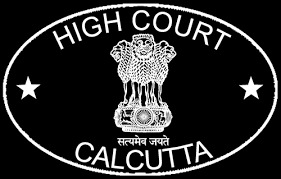@JUDGMENTTAG-ORDER
D.K. Sinha, J.@mdashThis criminal appeal is directed against the judgment of conviction and order of sentence dated 28.6.2000, passed by the learned Sessions Judge, Palamau at Daltonganj in S.T. No. 608 of 1998, whereby and whereunder, the sole appellant Harihar Thakur was convicted u/s 376 of the Indian Penal Code and sentenced to undergo rigorous imprisonment for seven years and fine of Rs. 2,000/- with default stipulation.
2. Prosecution story, as it sands narrated in the fardbeyan of the informant PW 2 Ram Naresh Giri recorded on 24.7.1998, was that he had married his daughter Manju Devi, aged about 25 years, some eight years ago with one Harihar Giri of Banaras but as she was suffering from epilepsy, she was returned by her husband from her matrimonial home. Her husband deserted her by severing relationship on account of her regular epileptic fits and that she was mentally challenged. It was further narrated that in his house besides Manju Devi, his wife and younger daughter Renu Kumari used to live whereas, sharing common courtyard, his younger brother Raj Kishore Giri was living. The informant was a priest by profession who used to visit different places and on 25.5.1998, when he returned back to his home, he found his daughter Manju Devi narrating owes to her aunt Sita Devi about the alleged occurrence which took place a month ago at about 12 O''clock in the day hours when the appellant Harihar Thakur came to her door and demanded a pot of water and when she carried a pot full of water, the appellant Harihar Thakur gagged her mouth and forcibly took her towards western- southern portion and ravished her. Whenever she attempted to raise alarm during commission of such offence, her mouth used to be pressed by the appellant. Though she had narrated the occurrence to her mother Kalwati Devi she suppressed the matter only with a view to avoid altercation and bloodshed. Informant while explaining the delay in lodging the FIR narrated that the matter was placed before the village panchayat but since it could not be decided, police case was instituted.
3. Charge against the sole appellant Harihar Thakur was framed after submission of charge-sheet by the Investigating officer, u/s 376 of the Indian Penal Code who pleaded not guilty and claimed to be tried.
4. Mr. A.K. Kashyap, learned senior counsel initiating his argument submits that the prosecution case was false and the appellant has been implicated on account of previous enmity on the instance of the informant Ram Naresh Giri. Appellant was married some thirty-five years ago and out of wedlock, six sons and two daughters were born to his wife. His two sons were already married and therefore, the allegation that he had ravished Manju Devi did not appear to be a convincing allegation. FIR was lodged after inordinate delay of one month without plausible explanation and on this score alone, entire prosecution case is liable to be disbelieved.
5. Advancing his argument, Mr. Kashyap, learned senior counsel points out that admittedly, Renu Kumari was the own younger sister of Manju Devi living with her and was present at the relevant time of alleged occurrence. Similarly, informant Ram Naresh Giri in the fardbeyan admitted that the house was shared by younger brother and the members of brother''s family and at the relevant time of alleged occurrence they were also present but none of them could be produced in the witness box on behalf of the prosecution as a corroborative evidence to substantiate the charge against the appellant Harihar Thakur.
6. The learned senior counsel further submits that admittedly there was no eyewitness of the occurrence except the injured alleged victim but she has not stated in clear words before the trial Court that she was ravished by the appellant except that she was pinned down on the earth by the appellant. Victim was medically examined by PW 10 Dr. Dipti Dey after more than a month of the alleged occurrence. Naturally no sign of rape could be detected. But the doctor admitted that the victim was mentally retarded and the prosecution failed to examine a mentally retarded witness as per provisions u/s 118 of the Evidence Act.
7. Mr. Kashyap emphatically submits that the testimony of the mother of the victim PW 5 Kalawati Devi is very important who admitted under cross-examination that her daughter Manju Devi was mentally retarded and she had poor memory with respect to identification of persons. On the date of alleged occurrence, Manju had gone mad and was unable to explain as to how the occurrence took place. She further narrated that she was informed by her younger daughter Renu Kumari about the occurrence and that after two days information was given at the police station. She admitted in her testimony that the appellant was on visiting terms who used to come to her house having parlance with Manju Devi and she too, used to visit his house. Both had love affairs and though this witness was not inclined but at the instance of the villagers a case was instituted.
8. Other witnesses, being not the eyewitnesses of the occurrence, have simply narrated that they derived information from the different sources. Nothing much less any relevant fact pertaining to the alleged occurrence could be gathered from the statement of the Investigating Officer PW 11 Baldeo Pandey, the counsel stressed.
9. Finally, Mr. Kashyap submitted that by no means offence u/s 376 of the Indian Penal Code could be made out against the appellant in the facts and circumstances of the allegation and he has been enlarged on ad interim bail after serving out four years and four months of punishment in the Judicial custody out of seven years.
Mr. Tapas Roy, learned APP on behalf of the State- respondent submitted that the appellant Harihar Thakur in his extra-judicial confession before the members of village panchayat had admitted his guilt but this fact related to his extra-judicial confession could not be brought on the record. Mr. Roy further submitted that the victim Manju Devi because of her mental disablement could not be able to narrate in clear words that she was ravished by the appellant but she narrated that when she returned with the pot filled with water on the demand of the appellant while he was sitting on the cot, she was forcibly taken out towards the corner, pushed back on the earth and he climbed over her body. She could not further narrate as to what he did thereafter but subsequent event could be inferred in view of the intention the appellant had. while doing such act. Admittedly. Renu Kumari, younger sister of the victim, could not be examined in this case besides, other inmates of the house but for such lapses entire prosecution case cannot be disbelieved and brushed aside.
10. Having regard to the facts and circumstances of the case and arguments advanced on behalf of the parties. I find, that the appellant has been convicted u/s 376 of the Indian Penal Code on the statements of Manju Devi i.e. the victim and her mother PW 5 Kalawati Devi in the trial Court. The prosecution failed to produce any eye-witness of the occurrence as usually it happens in the offence of rape but when there was admitted fact that there were other inmates in the house of the informant including his younger daughter Renu Kumari and the members of the family of his younger brother, it was incumbent upon the prosecution to examine the other witnesses and Renu Kumari in this case who had conveyed the occurrence to her mother in its near proximity. Admittedly, Manju Devi had not narrated in clear words that the appellant had committed the offence of rape by removing her garments and exposing her private parts and having sex with her except that she was forcibly pinned down and the appellant climbed over her body. Manju Devi had prudence to understand the thing to some extent and therefore, she did not go beyond the sequence that the appellant climbed over her body. Other witnesses are hearsay who derive information from the different sources Including father and mother of the victim and therefore, their evidence are secondary in nature, as the persons through whom they derived information abstained from the witness box for the reasons best known to the prosecution. Even if relying upon the uncorroborated single testimony of the Manju Devi, I do not find that offence of rape is attracted against the appellant Harihar Thakur except that the appellant used criminal force to Manju Devi intending to outrage or knowing it to be likely that he would thereby outrage her modesty which is an offence u/s 354 of the Indian Penal Code. Therefore. I find and hold that in the given situation the conviction of the appellant u/s 376 of the Indian Penal Code cannot sustain and that the relevant section on the face value of the materials on record would be Section 354 of the Indian Penal Code. Accordingly, his conviction u/s 376 of the Indian Penal Code is modified to his conviction for the offence u/s 354 of the Indian Penal Code. Since the appellant has been released on bail after four years and four months of adequate detention in judicial custody, his bail bond stands discharged.
11. This criminal appeal is allowed by modifying conviction and sentence of the appellant in the manner indicated above.

